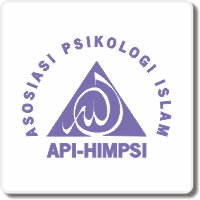PSYCHOLOGICAL WELL-BEING PADA ANAK BERKEBUTUHAN KHUSUS DI SEKOLAH INKLUSIF
DOI:
https://doi.org/10.32923/psc.v1i1.878Keywords:
psychological well-being, children with special needs, inclusive schoolsAbstract
This study aim to determine the dynamics of the psychological well-being in children with special needs in inclusive schools and the factors that affect the psychological well-being in children with special needs in inclusive schools. Data collection in this study was conducted using semi-structured interview techniques. Analysis of the data used refers to the opinions of Miles and Hubermen through 3 steps, namely data reduction, data display, and conclusion drawing. The results showed that: 1) The four research subjects had independence in carrying out daily activities and had good environmental control; 2) In determining the purpose of life, the four subjects have had their dreams, but have not been able to direct them; 3) The positive relationship of the subject to others, is influenced by the response of others to the subject. If the environment conducts bullying actions on the subject, then the subject feels threatened to be in the environment; 4) Factors that affect psychological well-being subjects in inclusive schools, namely economic, social, learning systems, and subject characteristics.
Downloads
Published
Issue
Section
License
Copyright Notice
The Psychosophia: Journal of Psychology, Religion, and Humanity is under the Creative Commons Attribution 4.0 International (CC-BY 4.0) License, according to which:
1) Authors retain copyright and grant the journal the right to first publication, with the work simultaneously licensed under the Creative Commons Attribution (CC-BY 4.0) that allows the sharing of articles published with the acknowledgment of authorship and the initial publication in this journal.
2) The authors are authorized to make additional contracts separately for distribution of the version of the work published in this journal (for example, publication in an institutional repository or as a chapter of the book), as long as there is recognition of authorship and initial publication in this journal.
3) Authors are authorized and encouraged to publish and distribute their work online (for example, in institutional repositories or on their personal pages) at any time before or during the editorial process, as it increases the impact and reference of the published work.






